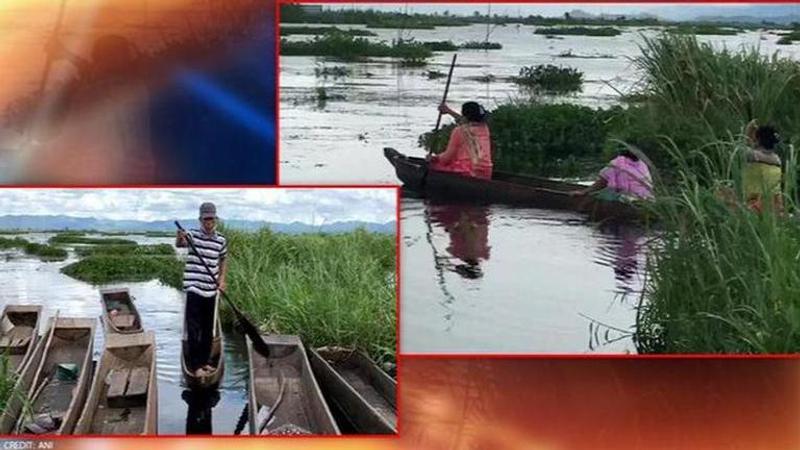Published 16:00 IST, August 23rd 2020
Manipur: Inhabitants surrounding Loktak lake seek govt help as COVID threatens livelihood
COVID-19 pandemic and consequential lockdown has caused havoc across the country, more so in the rural areas of the country which lack connectivity

The COVID-19 pandemic and the consequential lockdown has caused havoc in the rural areas of the country. Even though the virus spread was more aggressive in the urban areas across the country, the rural areas which lacked connectivity or the ones which were dependant on urban areas for their source of livelihood suffered immensely due to the pandemic.
One such village named Champu Khangpok village in the northeastern state of Manipur suffered the wrath of the pandemic. The locals of the village are primarily dependant on the occupation of fishing from the famous Loktak Lake which is the largest freshwater lake in the northeastern region. The Lake is also famous for floating islands locally called as 'phumdis'.
About 30,0000 locals depend on the Loktak Lake for their livelihood and these floating islands are permanent homes of several fishing communities who have been conserving this unique wetland ecosystem.
(Image: ANI)
The floating islands are a thick heterogeneous mass of vegetation, soil, and organic matter that looks like small lush green islands. On the Phumdis, the fishing community builds small thatched huts to live in. About 240 fishing families from the Champu Khangpok village too are amongst those who were dependent on the lake.
However, the lockdown affected them greatly since they were stuck inside the lake on the floating islands and could neither sell their catch nor buy essentials as they used to do earlier due to the closing down of the nearby markets.
At a time when the world is resorting to education and conducting other professional obligation via digital means, this village is forced to survive on merely vegetables alone for their daily meals due to scarcity of essentials such as rice and pulses amid the COVID-19 pandemic.
Due to the pandemic and the consequential lockdown, they are not even able to sell their catch of fishes and have appealed to the government to designate the opening of two docks at Ningthoukhong and Yangoi Karang, twice a week so that they can sell their catch and procure their daily needs from the markets.
Nabachandra Oinam, a villager told ANI, "Most of us are fishermen and we are not able to sell fish in neighbouring markets due to restrictions. We are facing a lot of trouble due to this. The government should pay heed to our woes."
Besides, the Loktak lake is also becoming polluted by the day as several small rivers and streams from the valley and hills merge into the river which is spread over 26,000 hectares.
The education of children from the village has also drastically impacted as the availability of smartphones and a good internet connection is not possible on the floating village. Moreover, those surviving on vegetables without proper food would barely care about the availability of smartphone and internet.
Ningthoujam Ongbi Thasana Devi, another local, however, said that the government should pay heed to these difficulties, as buying a smartphone for education would be the last thought on the mind of those who have been struggling to survive each day.
However, a floating school in the same region is somehow managing to continue the education of the children living there, filling the gap during the pandemic.
(Image: ANI)
(Inputs from ANI)
READ | Forced To Travel 50 Km For Online Classes, Children In Maha Villages Reach Out To NCPCR For Internet
Updated 16:00 IST, August 23rd 2020






